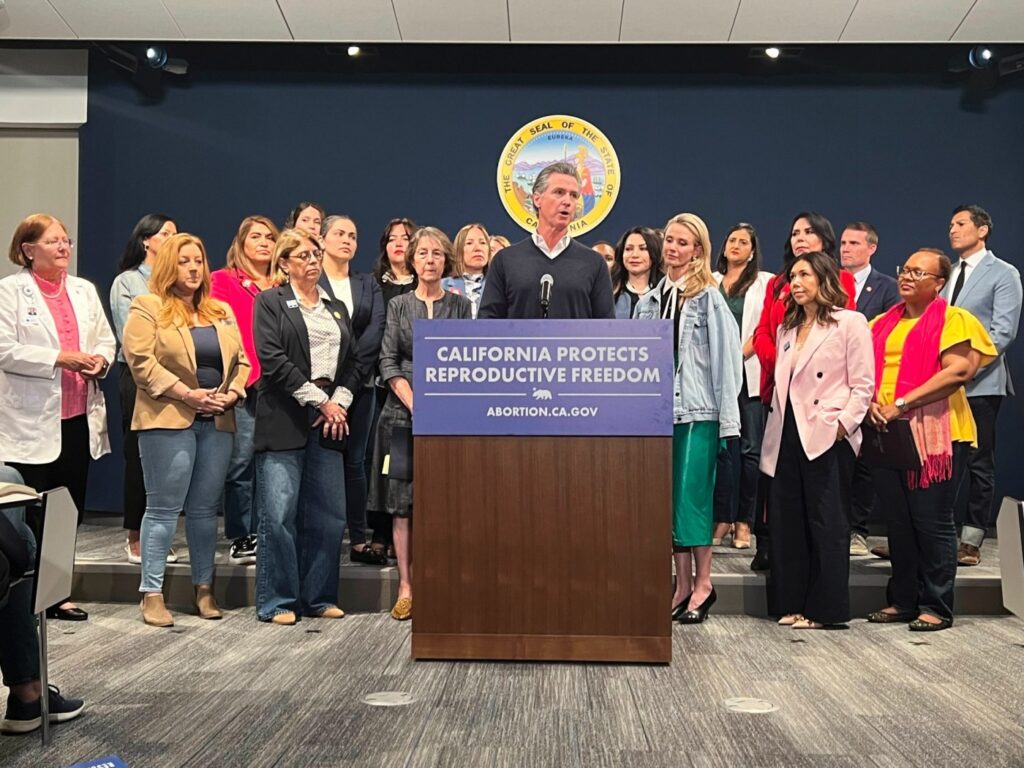
In April 2024, Gov. Gavin Newsom announced an “emergency bill” in response to restrictions on abortions in Arizona, in another distraction and excuse to increase his profile rather than prioritizing California.
The bill, Senate Bill 233, essentially grants state licensure reciprocity for doctors in Arizona to perform abortions in California; but what about anything else?
In February 2020, then-State Senator John Moorlach, sponsored two bills, Senate Bill 1053 and Senate Bill 1054, which would have granted licensure reciprocity to out-of-state nurses and physical therapists respectively. This was seemingly prophetic and necessary as the coronavirus pandemic hit California one month later in March.
Support ranged from the California Hospital Association, AARP California, and the Department of Defense – the latter’s interest because of several reports by the Department of Labor highlighting the obstacles in state licensure reciprocity for military spouses and because California has the largest number of stationed defense personnel in the nation.
California has healthcare worker shortages, with nurse vacancy rates of 30%. Doctor shortages in rural and inner city areas reach 50%. These supply shortages were the reason for decades-long campaigns to establish medical schools at UC Riverside and UC Merced, as well as UC Irvine entering into nursing, traditionally the purview of the Cal State system.
Concurrently, demand for healthcare is increasing. California has an aging population that is projected to exceed both numerically and proportionally the number of seniors in Florida.
During the pandemic, California created the California Health Corps to recruit healthcare personnel. 95,000 volunteered, but only one third had valid licenses and in the end only 850 healthcare workers signed up.
Physical therapists and reciprocity had wide support, including their associations, and both nursing and physical therapy are overwhelming female professions.
An actual emergency, aging population, decades of shortages, and majority female professions; surely these healthcare bills would pass.
Instead these two bills died in committee because of single opposition by the California Nurses Association, which is the fourth most powerful lobby in Sacramento, after the California Teachers Association, California State Employees Association, and the California Chamber of Commerce.
In March 2024, Assemblywoman Megan Dahle introduced Assembly Bill 3232, essentially the same bill to establish licensure reciprocity regulations for out-of-state nurses. However, given California politics and that she has an “R” next to her name, it will probably never become law.
When the ruling party wants something to happen, it does. In 2022, the Governor and Democrat legislature rapidly sponsored a ballot measure to “protect” abortion despite it realistically never being threatened in California.
Related Articles
Israel-Hamas war: Has Hamas bet correctly?
California charter school battles intensify as education finances get squeezed
Stop the ’emergency spending’ charade already
Unemployment debt still plagues California budget
Huntington Beach City Council’s silly fight over voter ID law
Conversely, in 2019 the legislature procedurally killed a housing bill, the top issue threatening California, because it would have been politically problematic had they voted against it, or had it passed.
Abortion and the false semblance of choice are the excuse for nonperformance, an IOU that will never be cashed, for something that is at a generational low. Meanwhile the birthrate has collapsed, and despite the governor’s suggestions to the contrary, traditionally abortion access does not increase the population.
The healthcare access situation is so dire, labor shortage of workers is so acute, and demand for births and presumably abortions are so inconsequential, that “nearly 50 hospitals had ended labor and delivery services between 2012 and 2023”.
California has failed to solve any major public policy issue in at least 30 years because of abortion. If nothing else, the state could at least be at the forefront of health and reproductive research: Increasing the quality of female fertility; decreasing maternal and natal mortality and childhood diseases; decreasing genetic abnormalities with male age; and gerontology, so maybe people can live to see grandchildren.
Matt Quan has a Masters of Public Policy from the University of Southern California, and is a graduate of the University of California, Irvine.
